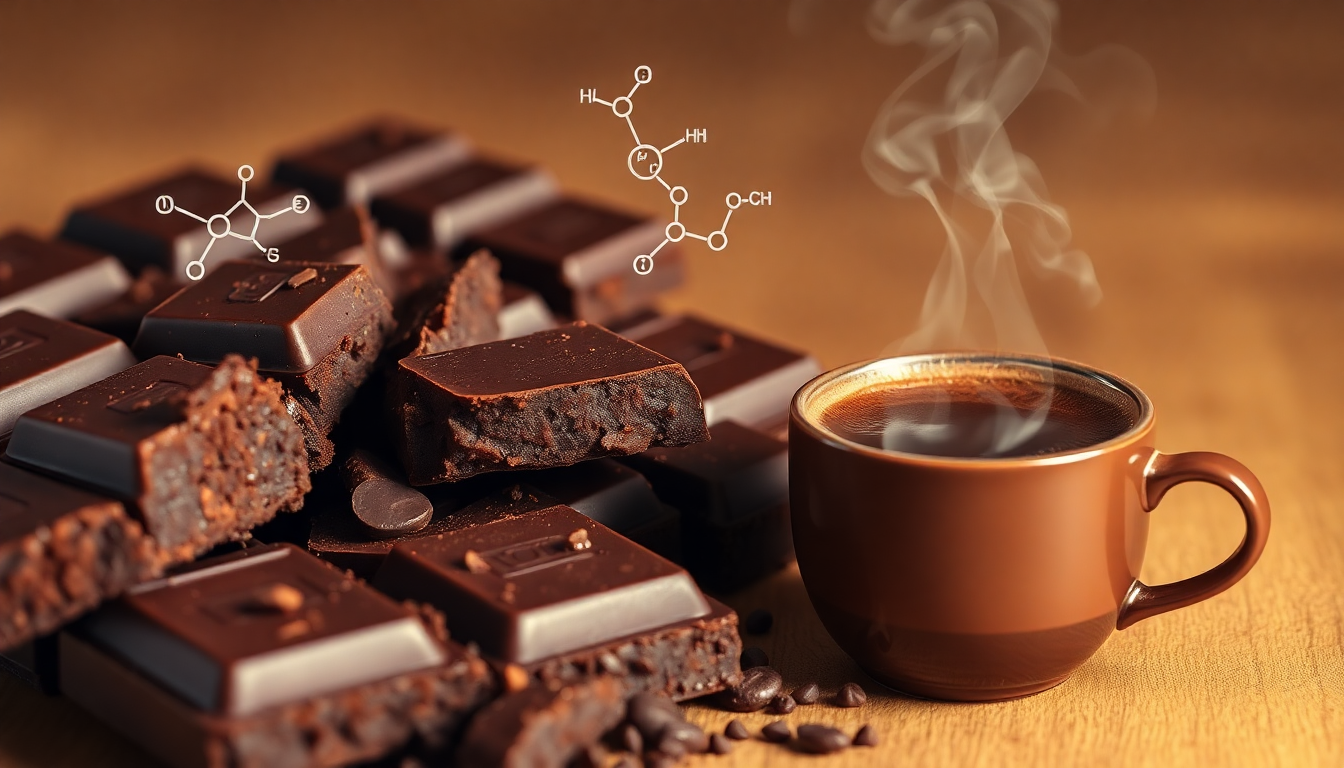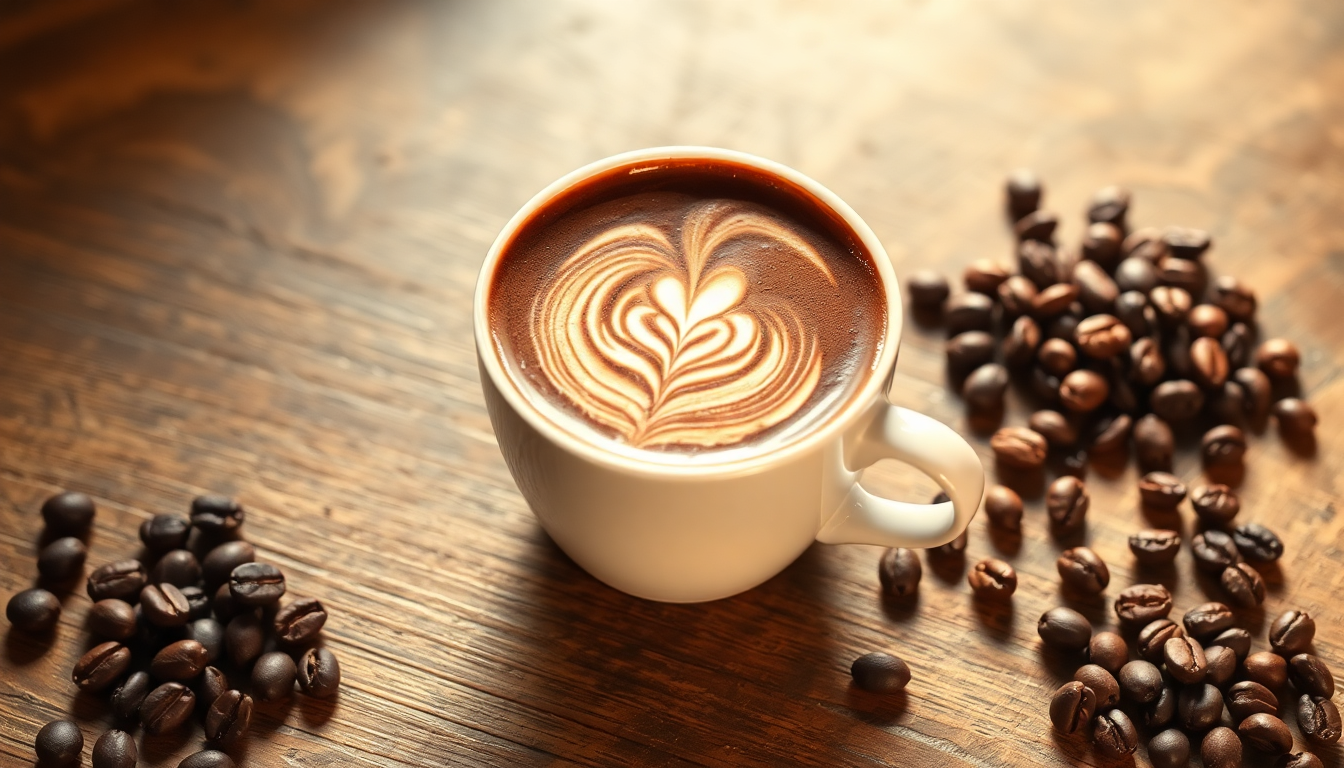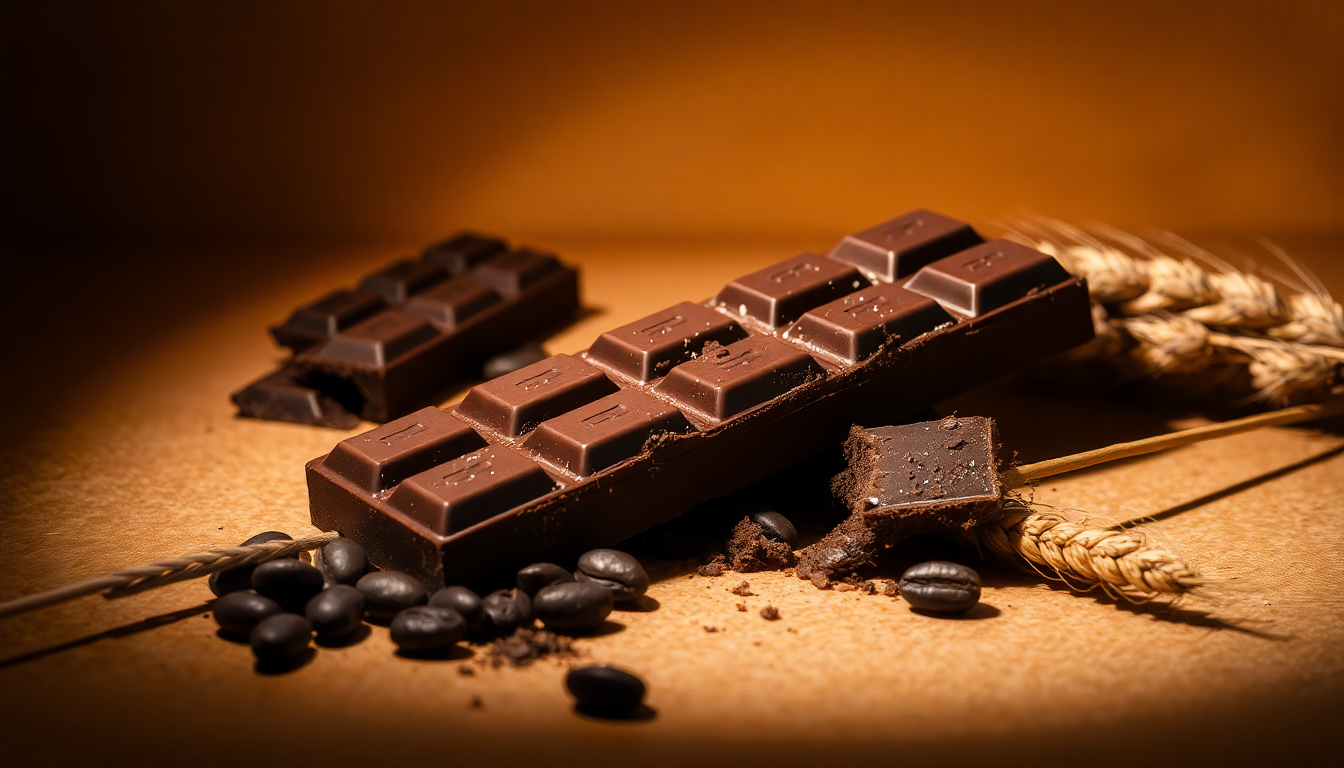
How Much Caffeine in Chocolate: Sweet Truths Unveiled
How Much Caffeine in Chocolate: Sweet Truths Unveiled
For chocolate lovers concerned about caffeine intake, understanding how much caffeine is in your favorite treat is essential. Whether you're sensitive to caffeine, monitoring your consumption for health reasons, or simply curious about what's in your chocolate, this comprehensive guide will reveal the sweet truths about caffeine in chocolate.
Caffeine Content by Chocolate Type
Not all chocolate is created equal when it comes to caffeine content. The amount of caffeine directly correlates with the cocoa solid content - the higher the percentage of cocoa solids, the more caffeine present.
Dark Chocolate (70-85% cocoa)
Dark chocolate contains the highest amount of caffeine among chocolate varieties.
- Per 1 oz (28g) serving: 12-30 mg of caffeine
- Per 100g bar: 43-105 mg of caffeine
The exact amount varies depending on the specific cocoa percentage and origin of the beans. As a general rule, an 85% dark chocolate will contain more caffeine than a 70% variety.
Semi-Sweet/Bittersweet Chocolate (45-65% cocoa)
- Per 1 oz (28g) serving: 5-20 mg of caffeine
- Per 100g bar: 18-70 mg of caffeine
Milk Chocolate (10-35% cocoa)
Milk chocolate contains significantly less caffeine than dark chocolate due to its lower cocoa content.
- Per 1 oz (28g) serving: 3-10 mg of caffeine
- Per 100g bar: 10-35 mg of caffeine
White Chocolate (0% cocoa solids)
- Caffeine content: 0 mg
White chocolate contains no caffeine because it's made with cocoa butter but no cocoa solids. Since caffeine is found only in the cocoa solids, white chocolate is caffeine-free.
Hot Chocolate/Cocoa Drinks
- Per 8 oz cup (homemade with cocoa powder): 5-10 mg
- Per 8 oz cup (commercial mix): 2-5 mg
- Per 16 oz grande hot chocolate (Starbucks): About 25 mg
Chocolate-Covered Coffee Beans
For those who enjoy this energizing treat:
- Per bean: 5-10 mg (approximately)
- Per 28g serving (about 40 beans): 150-175 mg
Factors Affecting Caffeine Content in Chocolate
Several factors influence the exact caffeine content in chocolate products:
1. Origin of Cocoa Beans
The geographical source of cocoa beans significantly impacts caffeine levels. Research has shown that beans from different regions contain varying amounts of caffeine:
- South American beans (from Ecuador, Peru, Venezuela): Typically contain the highest caffeine levels, with up to twice as much caffeine as beans from other regions
- West African beans (from Ghana, Ivory Coast): Generally contain lower levels of caffeine
- Asian beans (from Indonesia, Malaysia): Usually fall somewhere in the middle
2. Harvest Season
Interestingly, the time of harvest can affect caffeine content:
- Cacao harvested during dry seasons typically contains 15-23% more caffeine than cacao harvested during rainy seasons from the same farms
3. Processing Methods
While roasting doesn't significantly alter caffeine content in chocolate (unlike coffee beans), other processing methods can impact the final caffeine levels:
- More refined processing techniques may extract more caffeine
- Mass-produced commercial chocolates may have more standardized caffeine levels
- Artisanal and small-batch chocolates might have more variable caffeine content
4. Added Ingredients
Some chocolate products contain additional sources of caffeine:
- Coffee-infused chocolates
- Energy chocolates with added caffeine
- Chocolate with guarana or other caffeine-containing ingredients
Chocolate Caffeine vs. Other Sources
To put chocolate's caffeine content in perspective, here's how it compares to other common caffeine sources:
| Source | Serving Size | Caffeine Content (mg) |
|---|---|---|
| Dark Chocolate (70-85%) | 1 oz (28g) | 12-30 mg |
| Milk Chocolate | 1 oz (28g) | 3-10 mg |
| White Chocolate | 1 oz (28g) | 0 mg |
| Brewed Coffee | 8 oz | 80-200 mg |
| Espresso | 1 shot (1 oz) | 60-75 mg |
| Black Tea | 8 oz | 40-70 mg |
| Green Tea | 8 oz | 15-45 mg |
| Cola | 12 oz | 30-40 mg |
| Energy Drink | 8 oz | 70-100 mg |
As this comparison shows, even dark chocolate contains significantly less caffeine than a cup of coffee or a shot of espresso. You would need to eat approximately 3-5 ounces of dark chocolate to get the caffeine equivalent of one cup of coffee.
Beyond Caffeine: Theobromine in Chocolate
When discussing stimulants in chocolate, it's essential to mention theobromine, another methylxanthine compound that's closely related to caffeine. In fact, chocolate contains much more theobromine than caffeine:
- Dark chocolate (70-85%): Contains about 250-500 mg of theobromine per ounce
- Milk chocolate: Contains about 120-150 mg of theobromine per ounce
Theobromine produces milder stimulant effects than caffeine but lasts longer in the body. It contributes to chocolate's mood-enhancing properties and is responsible for:
- Mild energy boost
- Feeling of alertness
- Blood vessel dilation (potentially contributing to chocolate's cardiovascular benefits)
- Mild diuretic effects
The combination of caffeine and theobromine gives chocolate its unique stimulant profile, which many people find more gentle and sustained than the "jolt" from coffee.
Who Should Monitor Chocolate Caffeine Intake?
While chocolate generally contains modest amounts of caffeine, certain groups may want to monitor their intake:
Children
Children are more sensitive to caffeine due to their smaller body size and developing nervous systems. Parents might want to limit chocolate consumption, especially dark chocolate, for young children.
Caffeine-Sensitive Individuals
People who experience adverse effects from caffeine (anxiety, insomnia, rapid heartbeat) may need to limit chocolate, particularly in the evening hours.
Pregnant Women
Healthcare providers typically recommend pregnant women limit caffeine to 200 mg daily. While chocolate contributes relatively little to this limit, it should be counted as part of the daily total.
People with Certain Health Conditions
Those with certain conditions like:
- Anxiety disorders
- Sleep disorders
- Heart arrhythmias
- Gastroesophageal reflux disease (GERD)
May need to be mindful of their chocolate consumption, particularly dark chocolate varieties.
The Bottom Line: Should You Worry About Caffeine in Chocolate?
For most adults without specific sensitivities or health concerns, the caffeine in chocolate is unlikely to cause problems:
- You would need to eat large quantities of chocolate (particularly dark chocolate) to reach caffeine levels that might cause adverse effects.
- The caffeine in a serving or two of chocolate is generally minimal compared to other common sources like coffee, tea, or energy drinks.
- The combination of caffeine and theobromine in chocolate generally provides a milder, longer-lasting energy boost than coffee's more intense effect.
If you're specifically avoiding caffeine for medical or personal reasons, white chocolate is your best option as it contains no caffeine. Otherwise, milk chocolate contains less caffeine than dark varieties, making it a moderate choice.
For ultimate chocolate enjoyment, being informed about caffeine content allows you to make choices that best suit your personal health needs and preferences, without unnecessary worry. Moderate consumption of chocolate, even dark varieties, can be part of a healthy lifestyle for most people.
Frequently Asked Questions
Will chocolate keep me awake at night?
For most people, the small amount of caffeine in a serving of chocolate is unlikely to significantly disrupt sleep. However, individuals with high sensitivity to caffeine might experience sleep disturbances if consuming dark chocolate close to bedtime.
Does organic chocolate contain less caffeine?
No, organic designation refers to growing methods and does not affect the natural caffeine content of the cocoa beans.
Can I get a caffeine "buzz" from chocolate?
While high-cocoa dark chocolate does contain caffeine, most people would need to consume large quantities to experience a noticeable caffeine "buzz" similar to coffee. The combined effect of caffeine and theobromine creates a more subtle, longer-lasting energy boost.
Is chocolate addictive because of its caffeine?
The small amounts of caffeine in chocolate are unlikely to create physical dependence. Chocolate's pleasurable effects and cravings are more likely related to its combination of sugar, fat, texture, and various mood-enhancing compounds beyond just caffeine.
Does chocolate's caffeine content decrease over time?
No, caffeine is stable in chocolate products. The caffeine content remains consistent throughout the product's shelf life.

Claire Bennett
I'm Claire, a chocolate lover and artisan based in a small town where I run a tiny home kitchen dedicated to exploring everything chocolate. From single-origin dark bars to creamy ganache and handmade truffles, I find joy in working with all types of chocolate. I believe chocolate has a story, and I love bringing that story to life through humble, heartfelt creations.



Leave a comment
This site is protected by hCaptcha and the hCaptcha Privacy Policy and Terms of Service apply.